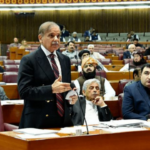<iframe src="https://bwidget.crictimes.org/" style="width:100%;min-height: 250px;" frameborder="0" scrolling="yes"></iframe>
Fat People: Rejecting Legends and Celebrating Personality

Fat people, a phrase that is frequently associated with stigma.Misunderstandings make up a sizable section of the world’s population. In this piece, we’ll examine the facts of fat people’s lives and debunk damaging stereotypes. And talk about how to create a more accepting and caring society.
What Does It Mean to Have Fat People?
Due in great part to social conditioning, the word “fat” often causes emotional feelings. People with higher body fat percentages are generally referred to as fat people; they are frequently classified as overweight or obese using measures such as Body Mass Index (BMI). These divisions, however, are constrained and fall short in describing the diversity of the human body and the wide range of human health.

Being overweight is not always bad for you. Numerous factors, including lifestyle, medical issues, environment, and heredity, contribute to it. Since every person’s body is different. Judging someone only on the basis of their size misses the many elements that affect their general health.
The Effects of Labeling Oneself and Fat People Shaming
People who are overweight frequently experience bias and discrimination in almost every aspect of life, including jobs and medical facilities. The perception that overweight people are sluggish, ill, or lack self-control is reinforced by this phenomenon, which is called fatphobia. Fat people have just as much diversity in behavior, skills, and health outcomes as everyone else, despite these damaging presumptions.

- Impact of Fat Shaming: Issues with Mental Health: Continuous exposure to fat-shaming can cause low self-esteem, anxiety, and depression. Detrimental social messages are frequently internalized by obese people, which can have a serious detrimental influence on their quality of life.
- Barriers in Healthcare: Many obese people claim that doctors ignore their symptoms and blame their weight for all of their problems. This may lead to neglectful treatment and delayed or inaccurate diagnoses.
- Employment Discrimination: Research shows that overweight people frequently experience prejudice when applying for jobs or are passed over for promotions. They may be unfairly viewed by employers as less capable or competent.
Dispelling the Myths About Obesity
A number of misconceptions about obese people support prejudice and discrimination. “Fat people are hazardous.”

- Although society views thinness as a sign of health, the reality is more nuanced. Many obese people lead healthy, active lives. Weight is not always the most important factor; other variables include diet quality, mental wellness, and cardiovascular fitness.
- “Fat people lack discipline.”
- Bad decisions are not usually the cause of weight gain or fatness. Stress, hormone imbalances, drugs, and genetics can all have a big impact on body weight. Being disciplined is not just for slender people.
- “Fat people don’t care about their health.”
- This presumption is damaging in addition to being incorrect. Many obese people take charge of their health and practice mindfulness, balanced nutrition, and physical activity. Body size should not be used as a criterion for pursuing health.
The Media’s Contribution to the Maintenance of Stereotypes
The way obese people are presented in the media has always been problematic. Larger-bodied characters are sometimes confined to humorous parts, presented as slothful, or utilized as cautionary stories in films and television series. These depictions fall short of capturing the complex lives of obese people and serve to perpetuate harmful stereotypes.

Recent initiatives, however, have aimed to alter this narrative. Conventional beauty standards have been questioned by body-positive organizations and the emergence of fat influencers on social media. Now, overweight creators are celebrating their bodies and sharing inspiring messages on platforms like Instagram and TikTok, providing a more realistic and positive representation of their experiences.
Health at Every Size (HAES)

Weight-neutral health care is promoted by the Health at Every Size (HAES) movement. HAES encourages activities that enhance general well-being, such as regular exercise, a healthy diet, and mental health treatment, rather than weight loss.
This method acknowledges that overweight people can have healthy, satisfying lives and that health is a complicated interaction of variables. By encouraging healthcare professionals to put their patients’ overall health ahead of artificial weight goals, HAES promotes an inclusive atmosphere.
Accessibility and Style for Obese People
Lack of easily available clothing is one of the underappreciated problems overweight people encounter. Larger-bodied people have had few options because mainstream fashion brands have only catered to smaller sizes for decades.
The impression that large people don’t deserve fashionable, well-fitting clothes is perpetuated by this exclusionary practice. This convention is starting to change, though, thanks to the emergence of inclusive fashion labels. Style knows no bounds thanks to companies like ASOS Curve, Torrid, and Universal Standard, which provide a variety of sizing options.

In addition to empowering overweight individuals, inclusive fashion conveys a strong message of equality and inclusion. It’s a step toward normalizing larger bodies in every aspect of life.
Promoting the Acceptance of Fat

- Accepting obese people is about giving them the same rights, respect, and opportunities as everyone else, not about praising obesity. The goals of advocacy work are to promote body diversity and eliminate systemic discrimination.
- Here are some ways that society and individuals might help bring about this change:
- Address Biases: Consider and dispel long-held stereotypes about obese people.
- Learn for Yourself: Listen to podcasts, read books, and follow activists who advocate for body positivity and fat acceptance.
- Encourage policy changes by supporting legislation that forbids discrimination based on weight in public places and workplaces.
- Respect autonomy: recognize that an individual’s body belongs to them. People who are overweight don’t owe society any explanations about their health or weight loss.
Creating a More Diverse Community
The first step in creating a society that accepts obese individuals is changing societal attitudes. Education is essential for dispelling myths and promoting compassion. We can foster an accepting culture by embracing body diversity and appreciating people for more than just how they look.

This change requires inclusivity in the media, fashion, and medical fields. Positive representation of overweight people can be a challenge for others to face. their prejudices while boosting confidence and self-worth.
Final Thoughts
Just like any other group, fat individuals are valuable, varied, and complex. They are entitled to equality of opportunity, decency, and respect, free from prejudice and condemnation. Society can create the foundation for a more promising and just future by combating negative stereotypes, encouraging inclusivity, and valuing body variety.
A society where everyone, regardless of size, can thrive unashamedly is what understanding is. Supporting fat people is all about, not just altering the narrative.





[…] Also Read […]